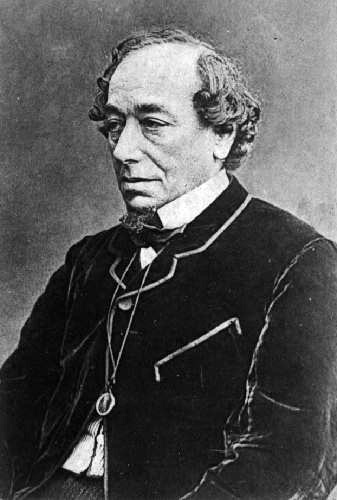„Nein, besser nicht. Sie wird mich nur bitten, Albert eine Nachricht zu bringen.“
Letzte Worte, 19. April 1881; er lehnte ein Angebot der Königin Viktoria ab, ihn zu besuchen; gemeint war Viktorias verstorbener Mann Albert von Sachsen-Coburg und Gotha
Original engl.: "No, it is better not. She will only ask me to take a message to Albert." - Fred R. Shapiro: The Yale book of quotations, Yale University Press 2006, Seite 208, zitiert nach Robert Blake: Disraeli, 1966
